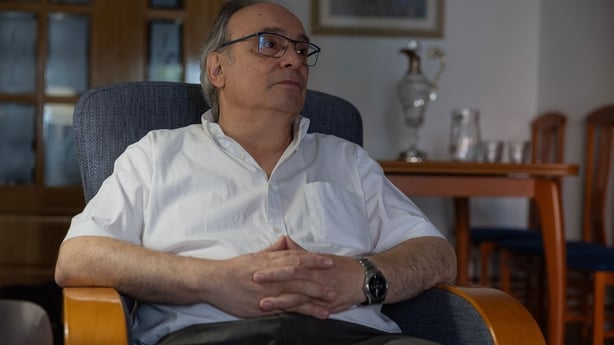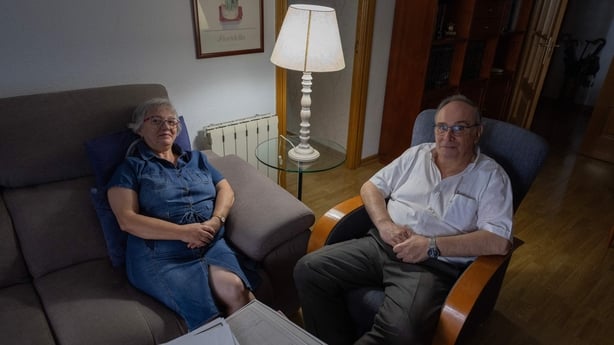For the first time since Francisco Franco's death in 1975, a victim who says he was detained and tortured by the dictator's regime testified before a Spanish court.
About 30 supporters applauded and chanted "reparation, truth, justice" as Julio Pacheco Yepes left a Madrid court after testifying for over an hour.
"This is the start of the breaking of the wall of silence and impunity which we have regarding Francoism," the 67-year-old told reporters after the hearing.
"It means there could be more (lawsuits) and we can finally obtain justice, I am hopeful. The first step has been taken."
Until now, Spanish courts have rejected lawsuits filed by Franco-era victims, arguing that they fell under an amnesty law passed in 1977 during the transition to democracy, or that the time limit for filing criminal charges had passed.
Mr Pacheco Yepes was just 19 years old when he was arrested in Madrid in August 1975 for belonging to a left-wing underground movement that opposed the regime.
His detention happened just three months before the death of Franco, who had ruled Spain with an iron fist since the end of the country's 1936-39 civil war.
Mr Pacheco Yepes said he was tortured for several days at police headquarters in the city's Puerta del Sol Square before being jailed for "terrorism".
Nearly five decades later, he filed a lawsuit against his four alleged torturers, among them former police commissioner Jose Manuel Villarejo, who recently won notoriety for spying on some of Spain's political and business elites.

The case was filed in February and in May, judge Ana Maria Iguacel decided to admit it on grounds it contained "possible" evidence of "crimes against humanity and torture".
Ms Iguacel also indicated she intends to summon the alleged torturers for questioning and has requested documents from the police and the National Archives.
Once her investigation is finished, Judge Iguacel will have to decide whether to dismiss the case or send it to trial.
"It is an important milestone," Mr Pacheco Yepes said at his home in Vallecas, a working-class district of southeastern Madrid.
The former printer hopes his testimony will "open a chink in the wall of impunity" that has bedeviled the victims' search for justice, and will pave the way for courts to be "more open to future lawsuits".

The United Nations has urged Spain to revoke the amnesty law, which was passed two years after Franco's death and prevents the prosecution not only of offences committed by political opponents of the regime, but also those carried out by "civil servants and public order agents" such as police.
To the despair of victims, many Franco-era torturers have died without ever standing trial, such as policeman Juan Antonio Gonzalez Pacheco, who died in 2020.
His nickname was "Billy el Nino" or "Billy the Kid" for his habit of spinning a gun around his finger as he beat his victims.
One of the people who filed a lawsuit against him was 66-year-old Rosa Maria Garcia Alcon, Mr Pacheco Yepes' wife, but her lawsuit was rejected.
She was arrested at the same time as him in August 1975. He was her boyfriend at the time.
Read more:
Franco's Spain: a long and haunting dictatorship
Ms Garcia Alcon will also testify today, but as a witness. She says one of the ways the police tortured him was to force him to watch them hurting her.
Faced with legal obstacles in Spain, victims' groups turned to Argentina where magistrate Maria Servini in 2010 invoked the principle of "universal justice" to open an ongoing probe into genocide and crimes against humanity during Spain's civil war and the ensuing dictatorship.
As part of her probe in 2014, Ms Servini issued 20 international arrest warrants for former Franco regime officials, among them ministers, judges and police officers, but Madrid refused to cooperate.

